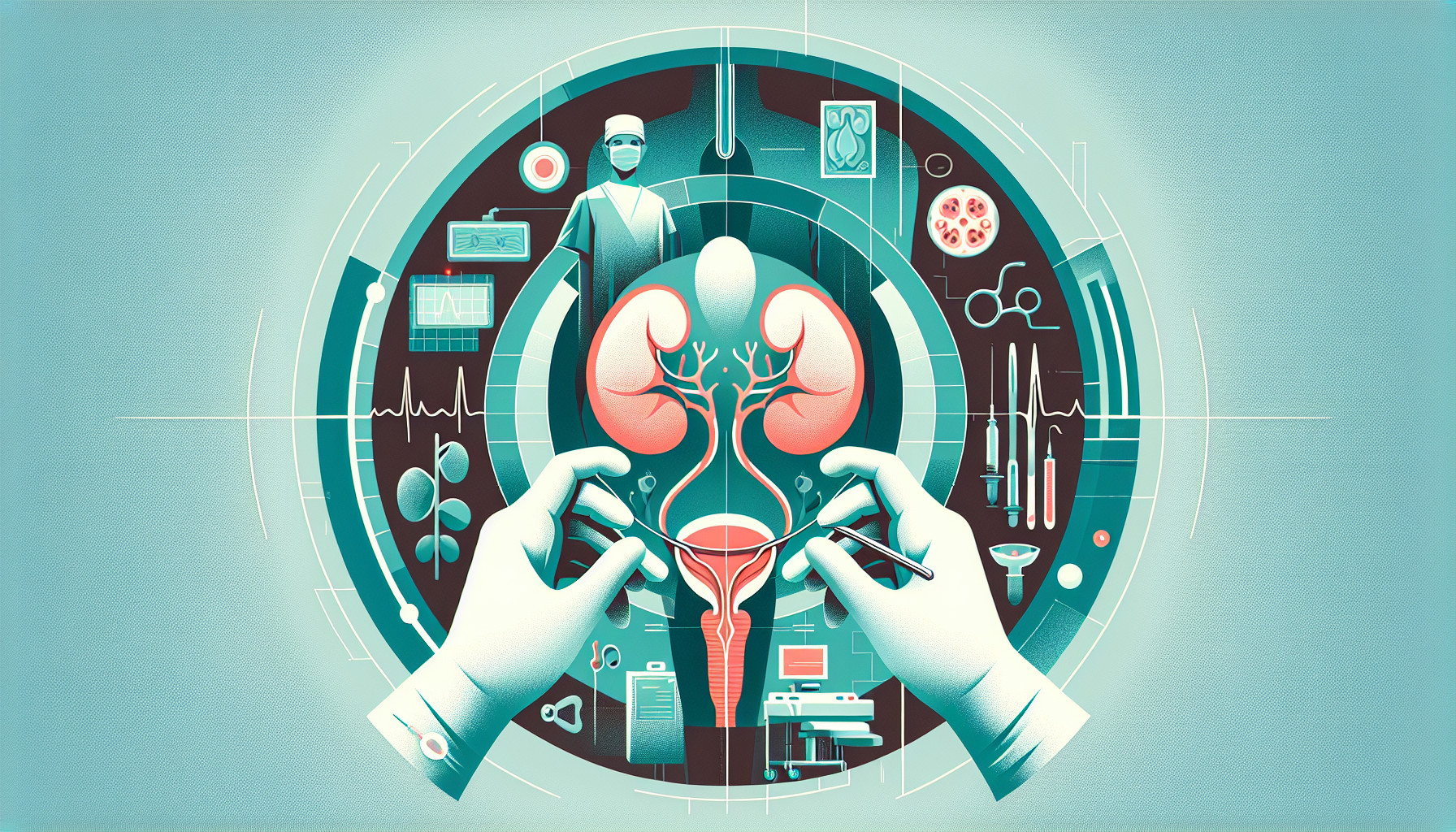Our Summary
Uterine fibroids are a common problem in women’s reproductive health, and they often cause bladder issues. However, it’s not clear how different fibroid surgeries affect different types of urinary incontinence symptoms. This study aimed to find out if removing uterine fibroids through surgery affects bladder symptoms. It also looked at how common bladder symptoms are in women having fibroid surgery and if there’s a connection between fibroid characteristics, size of the fibroids removed, type of surgery, and changes in bladder function after surgery.
The study included 61 women who underwent fibroid surgery between 2011 and 2016. Before and 6 weeks after their surgeries, they completed a questionnaire about their bladder symptoms. The study found that most of these women (96.6%) had various bothersome urinary symptoms before their surgeries, regardless of the characteristics of their fibroids. After surgery, their bladder symptoms significantly improved. For example, over 60% of women were cured of moderate to severe urge and stress urinary incontinence symptoms.
These findings suggest that bladder symptoms are common in women undergoing surgery for uterine fibroids. Therefore, removing fibroids through surgery could be a potential treatment option for women with bladder symptoms caused by fibroids.
FAQs
- Does removing uterine fibroids through surgery affect bladder symptoms?
- How common are bladder symptoms in women undergoing fibroid surgery?
- Is there a connection between the size of the fibroids removed and changes in bladder function after surgery?
Doctor’s Tip
One helpful tip a doctor might tell a patient about bladder surgery is to follow post-operative instructions carefully to ensure proper healing and minimize the risk of complications. This may include avoiding strenuous activities, staying hydrated, taking prescribed medications as directed, and attending follow-up appointments with the doctor. It is also important to communicate any new or worsening symptoms to the doctor promptly. Remember, every patient’s recovery process is unique, so it is essential to follow your doctor’s personalized recommendations for the best outcome.
Suitable For
Patients who are typically recommended bladder surgery are those who have bladder issues caused by conditions such as uterine fibroids, urinary incontinence, bladder prolapse, bladder cancer, interstitial cystitis, or neurogenic bladder. These patients may have symptoms such as frequent urination, urgency, leakage, difficulty emptying the bladder, or pelvic pain. Bladder surgery may be recommended when conservative treatments such as medications, physical therapy, or lifestyle changes have not been effective in managing these symptoms.
Timeline
Timeline:
Before surgery:
- Patient experiences bothersome urinary symptoms such as urge and stress urinary incontinence
- Patient undergoes fibroid surgery to remove uterine fibroids
- Patient completes a questionnaire about bladder symptoms before surgery
After surgery:
- 6 weeks post-surgery, patient completes another questionnaire about bladder symptoms
- Most patients (96.6%) experienced significant improvement in their bladder symptoms
- Over 60% of women were cured of moderate to severe urge and stress urinary incontinence symptoms
Overall, removing uterine fibroids through surgery has been shown to be an effective treatment option for women with bladder symptoms caused by fibroids.
What to Ask Your Doctor
Here are some questions a patient should ask their doctor about bladder surgery for uterine fibroids:
- What type of bladder symptoms are commonly associated with uterine fibroids?
- How common are bladder symptoms in women undergoing surgery for uterine fibroids?
- How does removing uterine fibroids through surgery affect bladder symptoms?
- What are the potential benefits of surgery for bladder symptoms caused by fibroids?
- Are there any risks or complications associated with bladder surgery for uterine fibroids?
- What are the different types of fibroid surgeries available and how do they affect bladder function?
- How will my bladder function be monitored before and after surgery?
- Will I need any additional treatments or therapies for bladder symptoms after surgery?
- How long does it typically take for bladder symptoms to improve after fibroid surgery?
- Are there any lifestyle changes or precautions I should take to help manage bladder symptoms post-surgery?
Reference
Authors: Houlihan S, Koenig N, Friedman B, Lee T, Geoffrion R. Journal: Neurourol Urodyn. 2018 Aug;37(6):1965-1970. doi: 10.1002/nau.23541. Epub 2018 Jun 4. PMID: 29862556
